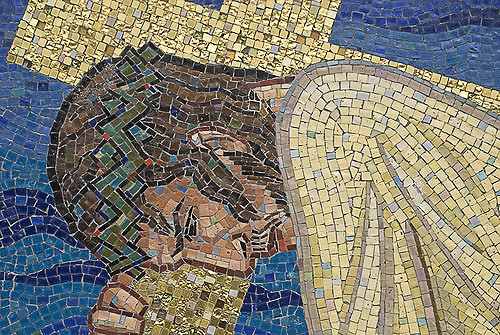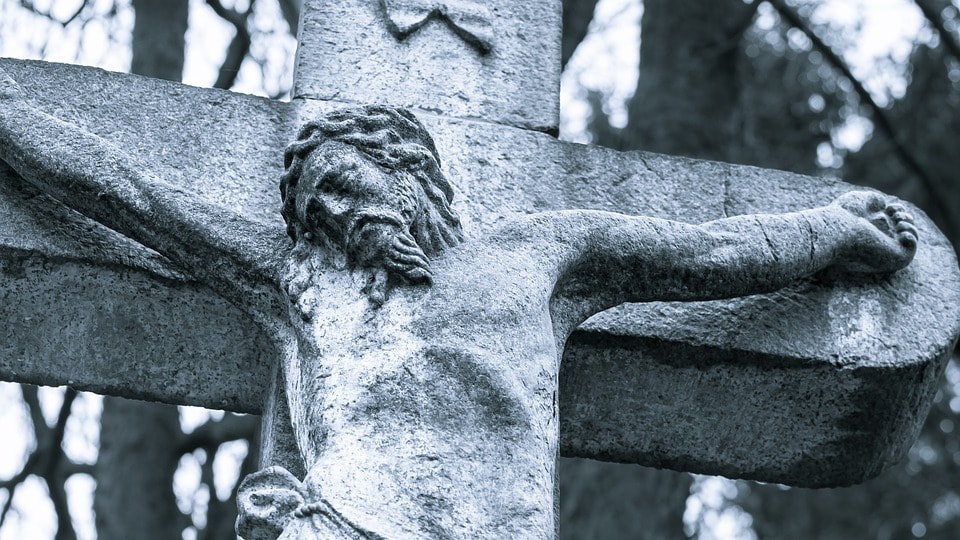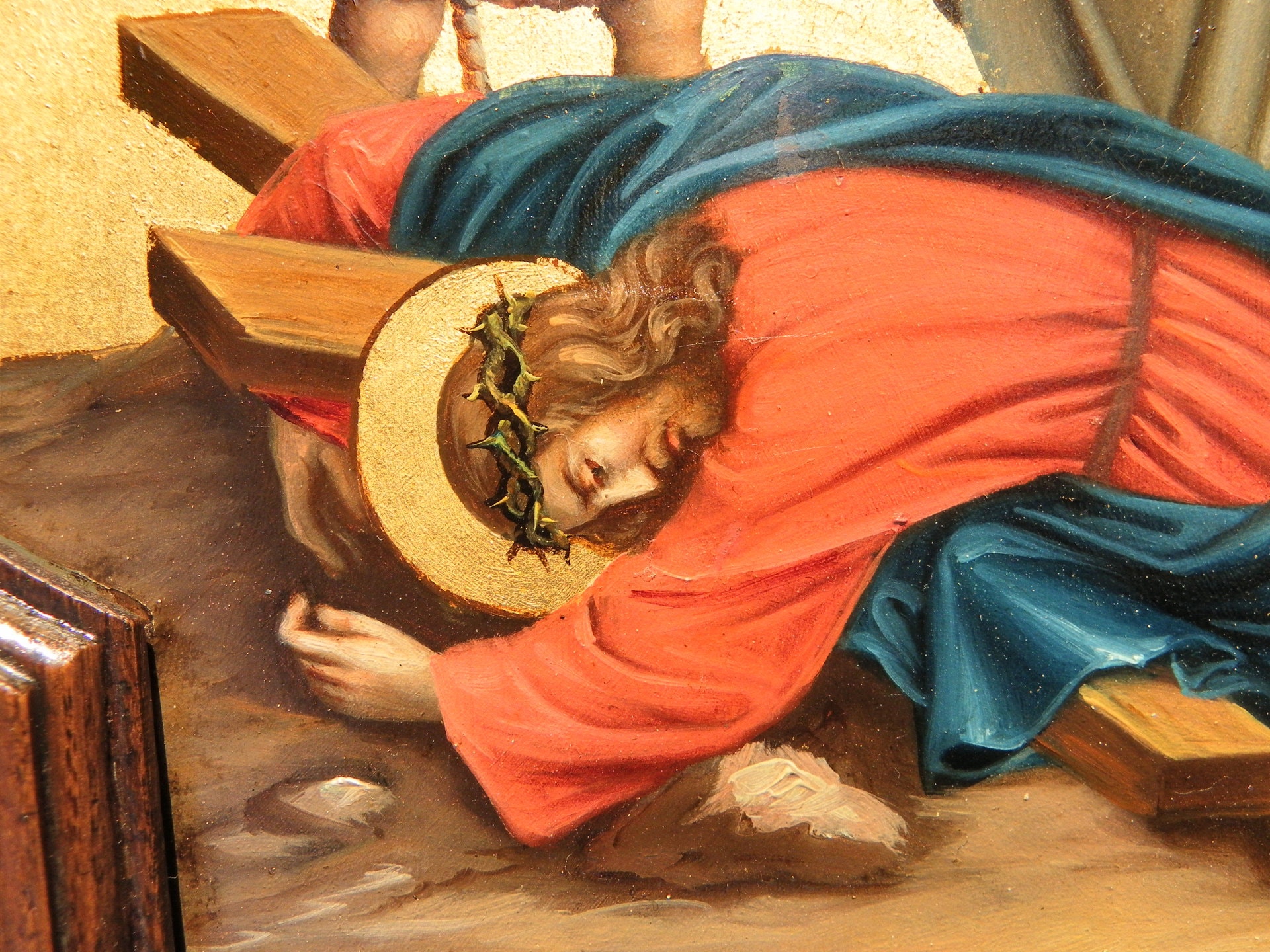Were you there when they crucified my Lord?
Were you there when they crucified my Lord?
O sometimes it causes me to tremble, tremble, tremble.
Were you there when they crucified my Lord?
It is on Good Friday that my imagination fails. It’s a pretty good imagination, having been fed a steady diet of poetry, art, and fantasy stories. But although it sees me through the splendid light infused glory of his nativity, the everyday life-changing miracles of his ministry and the drama of his arrest and trial, I cannot begin to imagine what it feels like to watch hope die.
I cannot envision what it would be like to be Mary at the foot of the cross as the sun went down on that day of miseries, when Jesus’ body is taken down to be buried, past hope of a miraculous rescue. Or what it would be like to be John, who alone of all his companions has stayed watching until the bitter end. Watching, and wondering if this horrible anti-climax was the conclusion of everything he had believed to be true, the end of their fellowship, and the dissolution of his unfolding transformation into someone new.
As the body of a son, a friend, a teacher and a supposed messiah was taken down from the cross and as the flesh that wrought wonders was cold and still, it must have seemed like the death of everything that was good. How could anything ever come out right again? Jesus had transformed water into wine, sickness into health, storms into stillness and even death into life. But in this, his death, how could despair be transformed into hope?
This is the tragedy of Good Friday. It is the despair over what we are apart from the life-giving presence of Jesus, the belief that God would leave us to our own brokenness and sin. Frederick Buechner writes that the message of Good Friday is “news that is bad before it is good…is tragedy before it is comedy.” And it is so difficult to imagine the true comedy of coming kingdom, where everything somehow comes out right and we sit down in celebration at the marriage feast of Jesus and his church.
Jesus had transformed water into wine, sickness into health, storms into stillness and even death into life. But in this, his death, how could despair be transformed into hope?
But in moments, many of us still feel caught in the tragedy; we can feel that God is absent from the world and from our lives. We look at the news and our hearts are broken by Palm Sunday church bombings in Egypt and by the many senseless deaths from fentanyl in our own city. We look inward and lose hope in the tragedies of our own broken relationships and unrealized expectations. We deal with sin that seems so firmly entrenched that it has become an abiding part of inner landscapes. And in what feels like hopelessness, we sometimes feel that we live still in that first Good Friday.
But we don’t.
Unlike Mary and John, we know the end of the story. We know that after he is laid in the grave, Easter morning dawns bright on an empty tomb. The readings on Good Friday, the poems and prayers that hurt the heart, the music that pulls and wounds, we experience it all from this side of Resurrection Sunday. As Aslan says to Lucy and Susan after his return to life, “Death itself [has started] working backwards.”
Though our imaginations are insufficient, they give us insight into both the despair of Good Friday and the hope of Sunday. In the midst of suffering, our prayers deepen and God gives us clearer and more hopeful imaginations to desire the coming of the kingdom. In the clarity of that desire, we practise hope with a fullness of heart and purpose in this imperfect present. Jürgen Moltmann writes about hope in this more clearly envisioned future: “Those who hope in Christ can no longer put up with reality as it is, but begin to suffer under it, to contradict it. Peace with God means conflict with the world, for the goad of the promised future stabs inexorably into the flesh of every unfulfilled present.”
As we mourn the brokenness of the world and of ourselves, may we be reminded that we do not mourn as those who have no hope. Jesus has and is overcoming death, and in the world to come, death will be no more and he will wipe away all our tears. We know the end of the story and it is no longer a tragedy, but a divine comedy. In our present this means that we are called, through faith, to practice hope in every circumstance, firmly rooted in the belief that all our griefs and misfortunes will undergo an ultimate reversal and the God who was crucified in darkness will rule over a kingdom of light.




